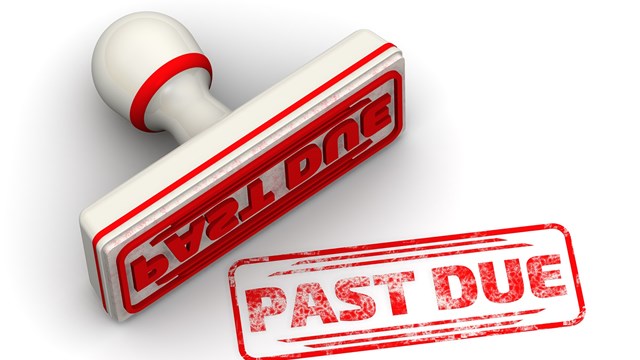Condo and co-op communities are governed by an array of legal mechanisms, including state and local laws and the community's own governing documents. Governing documents such as the proprietary lease, condo declaration, bylaws, and house rules cover most issues that arise, but when it comes to handling less-common legal disputes and litigation, condo and co-op attorneys quite often look to decisions made in previous disputes to either support their claims, or to counter the claims of the opposing party.
If a building finds itself embroiled in a dispute, it is likely a similar type of dispute has happened in another building at some point before. Also likely is that there is a relevant lawsuit, whose decision can help your board decide its best course of action. The following are some interesting lawsuits, whose decisions are instructive to co-op and condo boards.
Behind Co-op Walls
Who is responsible to repair, the co-op or the shareholder? Generally, shareholders can look to the proprietary lease to determine who is responsible. According to Marc H. Schneider, Esq., the managing partner of the Garden City-based law firm of Schneider Mitola LLP, “a typical provision in a co-op’s proprietary lease would, in most instances, provide that the shareholder is responsible for most repairs of items inside an apartment and the co-op is responsible for repairs to items outside the apartment, including items such as pipes located behind the walls of the apartment.”
Which items inside the apartment are the shareholder’s responsibilities? Schneider says these repairs are usually restricted to “interior walls, floors and ceilings, but excluding windows, window panes, window frames, sashes, sills, entrance doors, frames and saddles.” Furthermore, most proprietary leases specify that shareholders are responsible for appliances, including “the maintenance, repair, and replacement of plumbing, gas, and heating fixtures, and equipment and such refrigerators, dishwashers, removable and through-the-wall air conditioners, washing machines, ranges, and other appliances.”
Even with this language in the proprietary lease, often disputes arise when it is unclear whether the item damaged is technically “interior” or “exterior.” Schneider says there are two cases that help clarify these types of disputes: Franklin Apartment Associates v. Westbrook Tenants Corp., and Machado v. Clinton Hous. Dev. Co. “The courts have essentially established the following test to determine the answer: if it requires the destruction of the wall to make the repair, it is the co-op’s responsibility,” explains Schneider.
The Franklin Apartment Associates case involved the shower body in an apartment, which was located behind the bathroom wall of the apartment and needed repair. “The Appellate Division of the Second Department spoke directly on this issue,” Schneider says. “The court held that the repair of shower bodies was the co-op’s responsibility pursuant to the maintenance and repair provisions of the co-op’s proprietary lease, which required that the co-op be responsible for repair of ‘pipes or conduits within the walls’ that were part of ‘standard building equipment.’ The court reasoned that since “shower bodies could not be accessed without opening the walls...it was not reasonable to expect the shareholder to be liable for repairs that required opening of walls.”
In Machado v. Clinton Hous. Dev. Co., the Appellate Division of the First Department held that the hot water valve (stem) was the sole responsibility of the shareholder. “The court reasoned that, although the hot water valve connected to piping inside the wall, the valve was ‘outside’ of the wall and thus was the shareholder’s responsibility pursuant to the co-op’s proprietary lease,” Schneider explains. The court went on to state that it did not matter that the valve was “connected to a piece inside the wall,” he continues.
Thus, he says, the courts have clarified that shareholders are not required to open up walls to make repairs but if something can be repaired without damaging a wall, the shareholder is likely on the hook. Schneider explains that these cases are beneficial to boards because they “provide a simple test which enables the board to clearly delineate who is responsible for what repairs. When the shareholder or the co-op know for certain that a repair is their own responsibility, it allows the responsible party to act quickly and efficiently to resolve the damaged item as soon as possible so that the condition does not worsen and the co-op building can be preserved.”
Condo Foreclosures
Can boards collect common charges from lenders? Unlike cooperative corporations, who retain first lien priority over banks on the units in the building, condominium liens sit in second place to banks, and condos often have difficulty collecting delinquent common charges. The case that determined the priority of a lender’s mortgage was the 1993 case Bankers Trust Company v. Board of Managers of Park 900 Condominium.Condos stand to lose a great deal of money from lost common charges during a foreclosure proceeding in which the bank is moving very slowly; two important cases that speak to the rights of condos to common charges in this type of scenario.
In 2012, Ronald A. Sher, Esq.’s Westchester-based law firm of Himmelfarb & Sher handled the case J.P. Morgan Chase Bank, N.A. v. Malik, in which the firm asserted a claim against a lender due to its delay of the mortgage foreclosure process. According to Sher, his firm “attacked what was perceived as bad faith conduct of the foreclosing lender that appeared to be intentionally delaying and/or negligently postponing the case, which resulted in extensive common charges arrears, all to the detriment of the condominium and unit owner.”
The firm argued that the lender should be responsible to pay the common charges lost during the delay of the case. In the end, the judge agreed and ruled in favor of the condominium, forcing the bank to pay the common charges. Sher says this ruling was “unprecedented” and lenders claimed it was an “anomaly,” and could only apply to cases with the same set of facts.
More recently, in 2014, a board was less successful in obtaining relief in the case entitled Bank of America, N.A. v. Brooks. According to Sher, this case “impacts the importance of the Malik decision and may again be seen as unfortunately rewarding bad behavior of the lender by limiting the equitable effect of requiring the lender to pay common charges for its dilatory tactics.”
“The decision,” according to Sher, “permits the reduction of the interest owed that accrued during the delay, which benefits the unit owner, but provides little if any benefit for the board of managers of the condominium by apparently limiting the ability of the court to direct common charges to be paid by the lender.”
Unfortunately, after Brooks, condominiums have less of a “sword” and lenders are given more of a “shield” in these types of foreclosure delay situations.
Levandusky and the Business
Judgment Rule
A seminal case that continues to govern the actions of both co-op and condo boards is the case Levandusky vs. One Fifth Avenue, which was decided in 1990. According to Stewart Wurtzel, Esq. of the Manhattan-based law firm of Tane Waterman & Wurtzel, P.C., Levandusky, “decided 25 years ago this April, is still the most important decision affecting co-ops and condominium boards since it sets the standard by which every board members actions are scrutinized and reviewed.”
In this case, the Court of Appeals “set forth a standard analogous to the business judgment rule by which the Court would not substitute its judgment for that of the board,” says Wurtzel. The Court held, “so long as the board acts for the purposes of the cooperative, within the scope of its authority and in good faith, courts will not substitute their judgment for the boards.”
The case gave and continues to give board members a tremendous shield, by protecting their actions from liability as long as they are taken in good faith. The case also provides shareholders and unit owners protection if board members act in bad faith. “This question of whether something was taken in good faith or for the proper purposes of the cooperative that so much of current co-op and condominium litigation arises out of,” says Wurtzel. Wurtzel warns that litigation involving a question of good faith can be extremely expensive because of the amount of discovery and depositions required in these types of cases.
How can your board avoid this type of lawsuit? Wurtzel cautions boards “not to say or do anything which would give any shareholder or unit owner the opportunity to challenge whether the board acted in good faith.” The slightest flippant comment could become the subject of a lawsuit, “especially in the casual world of e-mails and text messages.”
Buildings that find themselves in conflicts similar to the cases above can be guided by the courts’ rulings. However, boards should contact their attorney to be certain. Schneider explains, “every situation has unique facts associated with the circumstances. A slight change of the facts could lead to a different result.” Thus, case law is another tool to help guide boards to the proper course of action.
Elizabeth Ilene Kaufman is a Manhattan-based real estate lawyer, freelance writer, and a frequent contributor to The Cooperator.







Leave a Comment